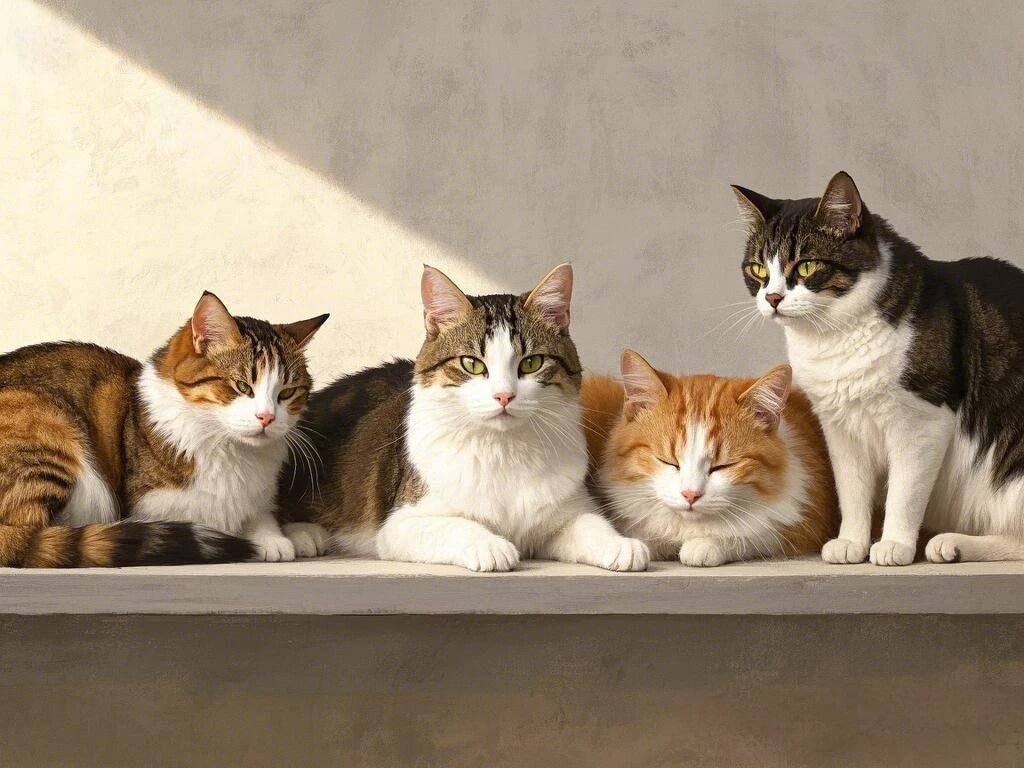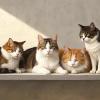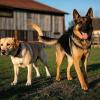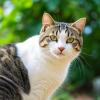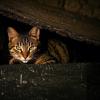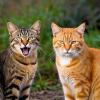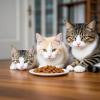What is a Moggy? What is a Crossbreed?
What is a Moggy? What is a Crossbreed?
Types of Cat and Dog Breeds
Have you ever seen a cat or dog on the street? They usually have short fur, tend to lack specific patterns or colors beyond black, brown, or white, and certainly don’t show signs of being a pure breed. These local or street animals are the opposite of “purebred” cats and dogs—pets that do not have a definite lineage or a registered breed by a breeder. Animals bred by cat or dog breeders are intentionally mated to produce specific traits, such as coat color, patterns, size, or other distinctive features that set them apart from non-purebred pets.
What are the categories of cat and dog breeds?
Purebred, Pedigree
“Purebred” literally means a pure or unmixed breed. Purebred cats and dogs are bred with the intention of producing pets with predictable characteristics and personalities. Well-known examples of purebred animals include Golden Retrievers, Huskies, Poodles, and Persian, Angora, or Maine Coon cats. The term "purebred" is used to differentiate them from "non-purebred" animals or local strays.
Pets from breeders should come with clear papers and certificates proving they are the offspring of other purebred animals, along with information about their parents, breeder, and other details to verify their authenticity. A purebred pet is one whose parents are both of the same breed, while a pedigree purebred means the pet has a complete lineage history—not just its parents. Purebred animals without these official documents are often not considered truly "purebred," so if you want a verified purebred pet, make sure your chosen breeder can provide the proper documentation.
Crossbreed
A crossbreed is a cat or dog that is a mix of two or more breeds. For example, the Himalayan cat originated from crossbreeding a Persian and a Siamese, resulting in a cat with the Persian’s flat face and Siamese-like color patterns. Another example is a Poodle crossed with other breeds, like the Labradoodle (Labrador + Poodle) and Goldendoodle (Golden Retriever + Poodle). Besides acquiring desired features, some sources claim that crossbreeding reduces the risk of hereditary diseases. However, a 2024 study found no significant difference between purebred Poodles and their crossbreed variants (like Cockapoo, Labradoodle, Cavapoo). [1]
Mixed Breed or “Mixdom”
Unlike crossbreeds, mixed breeds typically refer to cats or dogs from accidental matings between a purebred and a non-purebred, usually unplanned. Among animal lovers, the term “mixdom” or “mix domestic” is used to describe these pets.
Many mixdom cats have become strays—possibly due to formerly owned purebred cats being abandoned or lost and unneutered. Mixdom cats often have slightly longer fur and flatter noses. Mixdom dogs don’t have specific distinguishing features due to the wide variety of dog types and shapes.
Domestic Cats and Dogs
One of the terms for local or street cats and dogs is “domestic,” which means the animal doesn’t belong to a specific breed and wasn't intentionally bred by breeders. Even though most cats and dogs are considered domesticated by humans, “domestic” is commonly used among pet lovers as a more polite or affectionate alternative to “stray.” Cats and dogs often found wandering the streets almost always do not have a defined breed. In English, local dogs are called mutts, and local cats are called moggies.
The word "mutt" comes from early 1900s English, originally meaning a “silly or foolish person or animal.” Over time, its meaning evolved to refer to non-purebred or street dogs. [2]
The word “moggy” is used to describe cats that are not intentionally bred. Originating from British English, it's used to refer to non-pedigree cats—similar to what Indonesians call kucing kampung or local cats. [3]
The personalities of moggies and mutts are just as diverse and lovable as those of purebred pets. Each has its own unique character, and many would be happy to find a forever home. Due to the large population of domestic cats and dogs, adopting a pet from an animal shelter or rescue center is always a great option.

